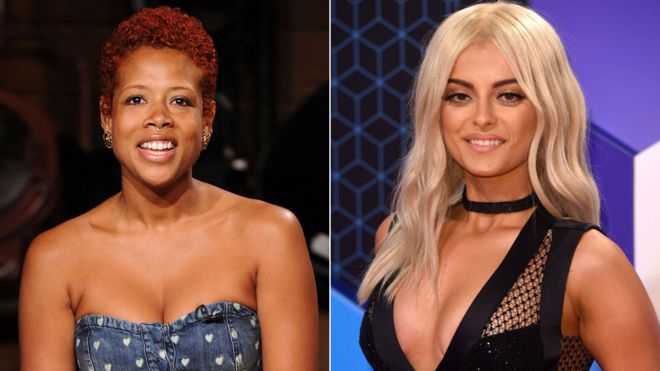
Pitch Battle’s judging panel will include Kelis and Bebe Rexha – who sang vocals on David Guetta and Nicki Minaj hit Hey Mama
Pitch Battle will become the latest singing contest set to hit our TV screens this summer but, 16 years on from ITV’s Popstars, why is the format still so strong?
Putting Kelis, Gareth Malone, Chaka Khan and Mel Giedroyc together in the same room is, quite simply, a magnificent idea.
Having clearly recognised this, BBC One has duly recruited this dream team to appear in its upcoming singing contest Pitch Battle.
Judges Kelis and Malone will be joined by a different guest judge each week, which will see Chaka Khan rotate with Will Young, Bebe Rexha and Seal to critique the contestants.
Choirs and a capella groups will be pitted against each other in a format you just might recognise from the many, many other talent shows which have preceded it.
“I remember seeing Popstars back in 2001 and it being a genuinely fresh and exciting idea,” says Julia Raeside, TV critic for The Guardian.
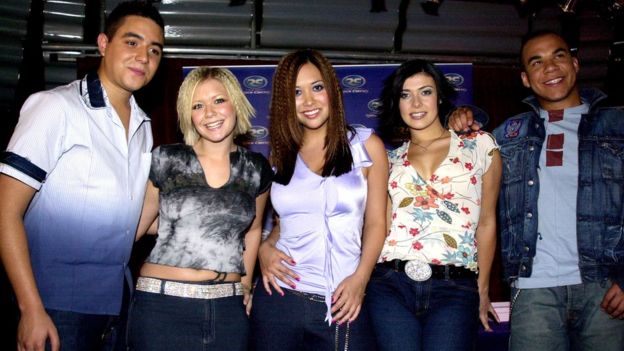
Hear’Say, made up of (l-r) Noel Sullivan, Suzanne Shaw, Myleene Klass, Kym Marsh and Danny Foster, won the first series of Popstars in 2001
“To watch the hopes and dreams of these young kids, it didn’t feel quite so manipulated back then, and the concept of a judge being a bit of a villain was relatively new.”
But, perhaps inevitably, the success of the show sparked a new wave of singing contests such as Popstars: The Rivals, Pop Idol, The X Factor and The Voice.
A number of successful groups and singers such as Girls Aloud, Little Mix, Leona Lewis and Olly Murs came out of these shows over the years – but there were also plenty of potential careers which never took off.
The Observer’s pop critic Kitty Empire says: “If you are an artist, quite often going on TV talent shows might not be the best idea for your career, because for every One Direction there are a thousand No Directions.
“If you want a career in music, that sometimes doesn’t happen as a result of going on a talent show. However, if you’re more versatile and more willing to go on the West End stage, you can certainly turn the TV exposure to your advantage.”
It’s true – there are plenty of contestants who applied for talent contests as singers, and ended up taking their careers in totally different directions after receiving the TV exposure.
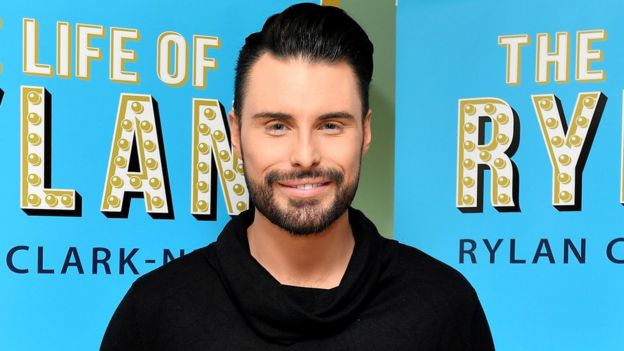
Rylan released an autobiography, The Life of Rylan, last year
Rylan-Clark Neal was something of a novelty act in the 2012 series of the show, but has gone on to be a successful TV presenter and even released an autobiography last year.
Elsewhere, 2005 X Factor winner Shayne Ward and Popstars’ Kym Marsh can now be seen acting in Coronation Street.
While Marsh’s bandmate Myleene Klass is now a radio presenter and X Factor 2008 victor Alexandra Burke has starred in multiple theatre productions.
Certainly some of these former contestants have had success, but Empire points out: “There is a wider issue of whether great art is being made.
“For a country that produced people like David Bowie, who is universally acclaimed, we’re not seeing that quality of talent on TV shows.
“People are just entertained by these programmes, and a singing contest is something that lends itself to TV watching by all generations. It gets kids and grandparents in front of the TV, in an age when most people are on YouTube.
“So it’s much more about the format being successful TV than it is about creating meaningful musical careers.”
A successful TV format it clearly is, but it’s perhaps surprising that 16 years on from Popstars, singing contests continue to dominate TV schedules.
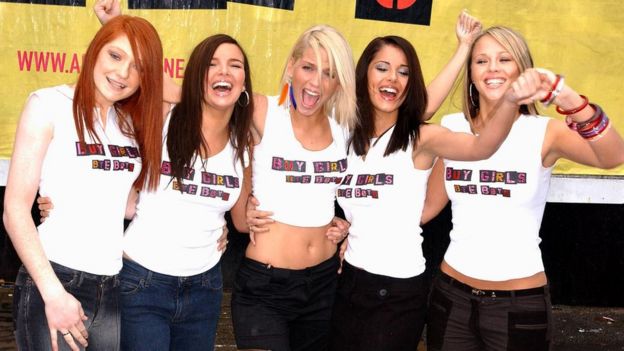
Girls Aloud formed after winning Popstars: The Rivals in 2002
“I understand the heavy reliance on singing contests – the idea that a show needs a result to make you tune in for the next instalment,” Raeside says.
“But I think it’s a shame that, by now, light entertainment producers haven’t come up with something to replace it.
She adds: “I used to work in TV development, and the wheels do tend to move quite slowly.
“Back then, they were trying to work out what was going to be the next Big Brother. Similarly, these singing shows have a shelf life, and some would argue they’ve already reached their sell by date.”
Empire agrees: “Increasingly now the talent show formula can get a little tired, and I think many people have realised winning these shows perhaps isn’t always the best thing to do.
“In Britain we particularly embrace this format, partly because we love an underdog story, like Paul Potts [the mobile phone salesman who won the first series of Britain’s got Talent].
“In America, the underdog stories don’t play so well – it’s the shiniest people with the straightest teeth who win. Whereas in Britain we love unlikely success stories, so it really serves our market.
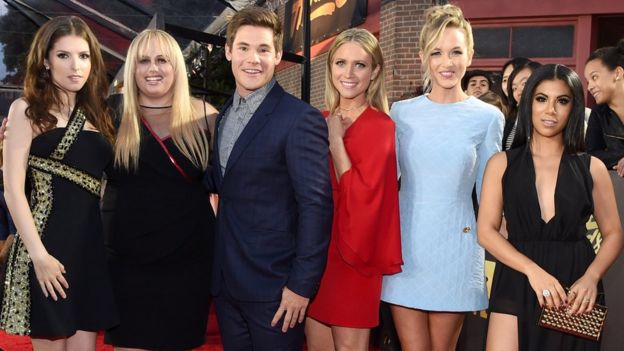
The Pitch Perfect films sparked renewed interest in a capella singing
Looking ahead to Pitch Battle, Raeside says she can see the appeal of using choirs instead of individual singers to attract viewers and thinks it’s a good way to get more mileage out of the talent show format.
“There was something quite shrieky about a show like The Voice, because it’s one singer trying to make their mark in a 90-second audition, and there’s something unrelaxing about watching that,” she says.
“When you watch a choir it has a much more positive feeling, so it could have the edge over a show where teenagers are trying to get their break.”
Empire agrees that, on paper at least, Pitch Battle “looks like it’s a winner”.
“Before Glee, it was a very American phenomenon, but now people getting together and harmonising doesn’t seem like such a weird thing to do anymore,” she says.
“The idea that there will be choirs and a capella groups battling it out means that you’re getting quite a variety of people into the TV studio, and presumably they’ll be doing mash ups and cover versions, so I can see how the format has been thought up to appeal to the broadest audience.”
But, Raeside adds: “I don’t know how much longer these shows can keep going for. I can’t see where else they’d take this format now, it feels like we’re coming to the end of the line.”
BBC
 Q FM Africa's Modern Radio
Q FM Africa's Modern Radio